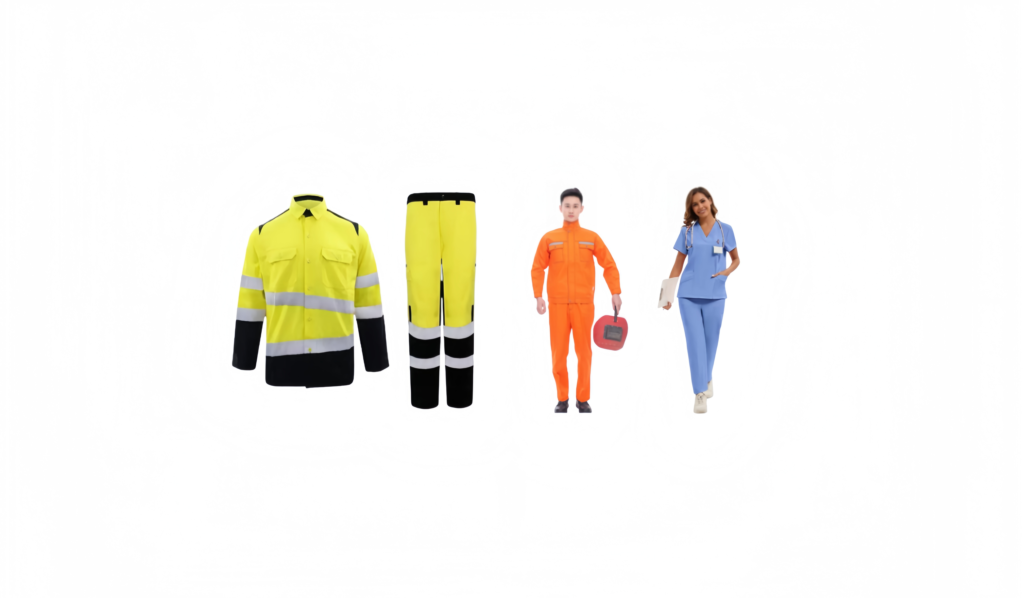Work suit : Selecting the right work suit is more than just choosing clothing—it is about safety, comfort, and professionalism. Different industries have unique requirements, so choosing the proper workwear helps protect employees and enhances company branding.

Step 1: Assess Industry Requirements
Construction and Engineering
Workers need durable work suits with reinforced stitching, flame-resistant fabrics, and reflective strips for safety.
Manufacturing and Warehousing
Breathable fabrics like cotton or poly-cotton blends ensure comfort during long hours, while multiple pockets add practicality.
Healthcare and Laboratories
Lightweight, easy-to-clean custom work suits made of polyester blends or antibacterial fabrics ensure hygiene and safety.
Hospitality and Service
Stylish, branded workwear with embroidery or printing enhances professionalism and customer trust.
Step 2: Choose the Right Materials
– Cotton and poly-cotton blends → comfort and breathability
– Polyester → durability and easy care
– Flame-resistant fabrics → ideal for high-risk industries
– Waterproof or coated fabrics → best for outdoor and utility work
Step 3: Focus on Design and Fit
Practical Features
Choose designs with reflective tapes, reinforced knees, or multiple pockets to match job functions.
Seasonal Adaptability
Opt for lightweight suits in summer and insulated versions for winter to maintain comfort year-round.
Step 4: Add Branding and Customization
Customized logos, colors, and embroidery make custom work suits part of your corporate identity. This not only promotes brand visibility but also fosters team unity.
Conclusion
The right work suit depends on your industry’s needs, from safety features to comfort and branding. By carefully selecting materials, design, and customization, businesses can provide functional workwear that enhances both performance and team identity.


